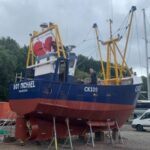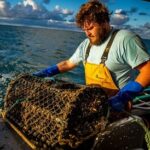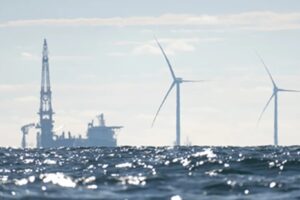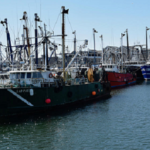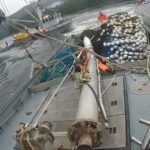Daily Archives: April 6, 2023
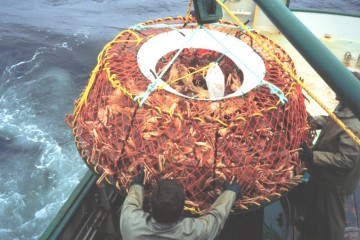
Price setting panel sets snow crab at $2.20 per pound — down over $5 from 2022 season
The Fish, Food and Allied Workers Union, which represents Newfoundland and Labrador’s inshore fishermen, had asked the panel for a price of $3.10, and say fishing at $2.20 per pound is unsustainable. FFAW president Greg Pretty said crab committees throughout the province have decided not to fish at $2.20 per pound, and will review their stance in the coming weeks. “There’s no appetite to go fishing for nothing,” Pretty told CBC Radio Thursday, calling the decision a catastrophe that rivals the cod moratorium of 1992. “You can’t get crew members for that. You can’t even pay crew members on that type of money…. There’s a net economic point where it doesn’t make any sense to fish, and that panel hit right on it. Spot on.”>click to read< 20:02
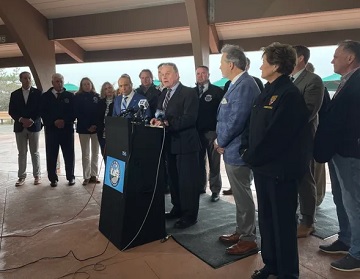
‘Tell us why’: Monmouth Commissioners call for investigation into surge of whale deaths
Monmouth County officials stood in the mist at Seven Presidents Oceanfront Park on Wednesday, where they gathered to call for an immediate stop to offshore wind energy work off New Jersey’s coast. Their announcement marked a new addition to a growing group of elected officials who are demanding answers on recent deaths among whales and dolphins across the region, and who allege offshore wind survey work is the cause. As of Wednesday afternoon, 10 whale deaths had been recorded along the Jersey Shore since Dec. 1. In addition, two separate pods of dolphins had stranded since early February on New Jersey beaches. Another three individual dead dolphins and one porpoise had washed ashore in separate strandings. >click to read< 16:47
Panel Decision on Crab Signals Economic Crisis for NL
The Standing Fish Price Setting Panel announced their decision on the price of snow crab for the start of the 2023 fishing season, selecting the Association of Seafood Producer’s (ASP) second price submission of $2.20, over the Negotiating Committee’s price of $3.10. Crab Committees throughout the province have made the unanimous decision to not fish at the unsustainable price and will review this position in the coming weeks. “The Panel’s decision today has put our industry in the most precarious situation it’s ever been in. The Final Offer Selection (FOS) process has completely lost its way when bottom of the barrel prices are being selected without absolutely any merit,” says FFAW-Unifor President Greg Pretty. >click to read the press release< 15:25
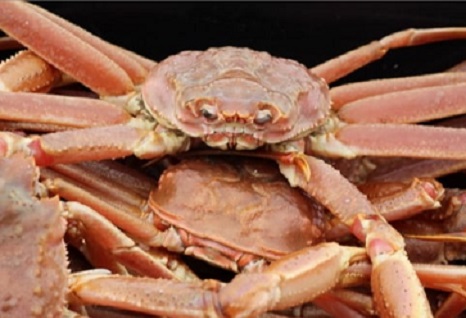
Pot-to-Plate – SEA-NL recommends $5-$6/lb wharf price for crab to the general public
Seaward Enterprises Association of Newfoundland and Labrador (SEA-NL) recommends its membership of inshore enterprise owners sell snow crab at the wharf to the general public for $5 or $6/lb to start the season. “You won’t sell all your crab to the local market, but you will sell some for $5 or 6/lb — double the price to be set by the pricing panel, and a bargain to the public,” says Pam Patten, SEA-NL president and a Fortune-based inshore enterprise owner. “The extra money will help until the price of snow crab picks up in world markets, and at the same time the inshore fleet can build a local market for fresh seafood.” >click to read the press release< 12:34
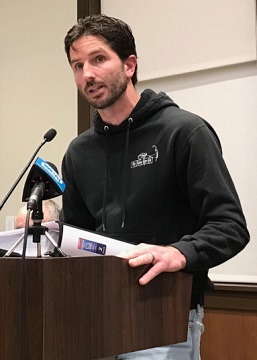
Fisherman Launches Petition Against Release of Pilgrim Water
Bourne resident Ryan Collins, whose father and grandfather were fishermen, continues the family tradition. He has now become an advocate as well. Collins has collected more than 214,000 signatures on a petition asking the owners of the former Pilgrim nuclear plant not to release radioactive wastewater into Cape Cod Bay. He said he has been listening to concerns from his fellow fishermen as well as family, friends, and neighbors about Holtec Decommissioning International’s proposed solution to disposing of the water from various systems at the shuttered plant. “Everyone I am speaking to is against it,” he said. Eight weeks ago, he started his online petition at Change.org. >click to read< 11:29
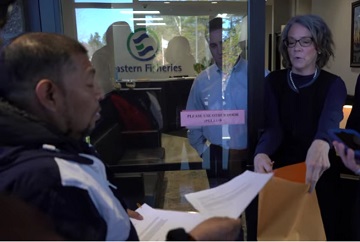
Eastern Fisheries severs ties with staffing firms in wake of NLRB case
Eastern Fisheries Inc., a global supplier of seafood based in New Bedford, Massachusetts announced Monday that it is going to employ workers directly instead of through staffing firms. Eastern Fisheries said it has long used staffing firms, but the decision to employ workers directly comes after a decision in an NLRB case. The company said one worker from a staffing firm had filed an unfair labor practice charge with the National Labor Relations Board claiming the company had improperly asked the staffing firm to stop sending the employee to its workplace. >click to read< 10:36
Undocumented workers boxed out as Eastern Fisheries restructures – Last week, Eastern Fisheries cut ties with its main staffing agencies. The company told 110 of its workers on Friday that they could reapply for the same jobs they previously held as direct employees of Eastern Fisheries. >click to read<
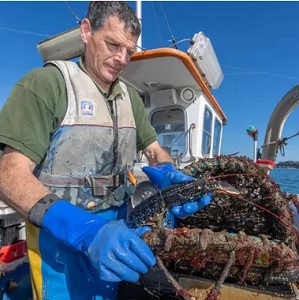
Not for the pot: how ‘V-notching’ lobsters may help save them
Cornishman Ned Bailey has caught and returned ‘notched’ lobsters for years as part of a broader effort to preserve stocks. But many fishers do not. He tosses out stray crabs, several starfish and a squirming conger eel. Every so often he pulls out a lobster: if the carapace is over 90mm (3.5in) long, he keeps it; if not, it’s thrown back into the sea, in line with regulations. But today, one lobster, the underside of its tail bursting with clusters of inky-black eggs, is kept aside. This is a berried hen, a pregnant female, carrying about 20,000 eggs. Bailey cuts a small “V” into its dappled royal-blue and yellow tail before gently laying the lobster back in the water. Now she is marked as illegal for others to land – and with any luck her reproductive potential is secured for a few more years. >click to read< 09:39
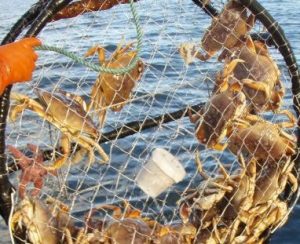
For Whales and Crabbers, Finding Balance Is Getting Harder
In Dick Ogg’s 25 years of commercial fishing, he’s had a few close encounters with whales—mostly while pulling Dungeness crab pots off the ocean floor. “I’ve had whales right next to me,” within about five meters, says Ogg. “They follow me, they watch, they’re curious. And then they go on about their business.” Ogg is fortunate his interactions have been so leisurely. For nearly a decade, California’s whales and crabbers have been locked in a persistent struggle. From 1985 to 2014, the National Oceanic and Atmospheric Administration (NOAA) reported an average of 10 whales were entangled in fishing gear each year along the west coast of the United States. >click to read< 07:53


































